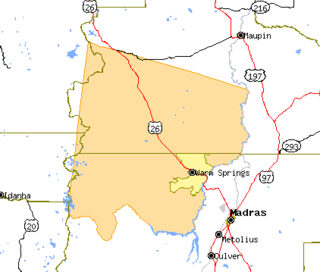
The Warm Springs Indian Reservation consists of 1,019 square miles (2,640 km2) in north-central Oregon, in the United States, and is occupied and governed by the Confederated Tribes of Warm Springs.
Wodziwob was a Paiute prophet who performed the first Ghost Dance rituals around 1869.
The Ligbi tribe speaks the Mande language spoken in Ghana in the north-west corner of the Brong-Ahafo Region. Ligbi is spoken by approximately 10,000 speakers. It is fairly closely related to Jula, Vai and Kono. A small population of Ligbi speakers is reported to live in Ivory Coast. Ligbi is also known as Wela (Hwela) or Numu. The latter of these refers to a subsection of the Ligbi people; Numu is Dyula for 'blacksmith'.
Numic is a branch of the Uto-Aztecan language family. It includes seven languages spoken by Native American peoples traditionally living in the Great Basin, Colorado River basin, Snake River basin, and southern Great Plains. The word Numic comes from the cognate word in all Numic languages for "person." For example, in the three Central Numic languages and the two Western Numic languages it is. In Kawaiisu it is and in Colorado River, and.

Comanche is a Uto-Aztecan language spoken by the Comanche people, who split off from the Shoshone soon after they acquired horses around 1705. The Comanche language and the Shoshoni language are therefore quite similar, although certain consonant changes in Comanche have inhibited mutual intelligibility.
The Timbisha are a Native American tribe federally recognized as the Death Valley Timbisha Shoshone Band of California. They are known as the Timbisha Shoshone Tribe and are located in south central California, near the Nevada border. As of the 2010 Census the population of the Village was 124. The older members still speak the ancestral language, also called Timbisha.
Northern Paiute, also known as Numu and Paviotso, is a Western Numic language of the Uto-Aztecan family, which according to Marianne Mithun had around 500 fluent speakers in 1994. Ethnologue reported the number of speakers in 1999 as 1,631. It is closely related to the Mono language.
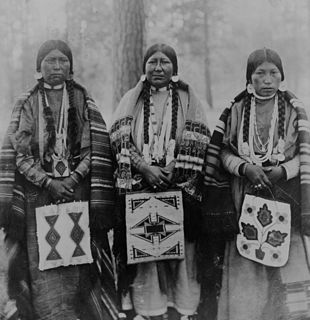
The Confederated Tribes of Warm Springs is a recognized tribe made of three tribes who put together a confederation of Native American tribes who currently live on and govern the Warm Springs Indian Reservation in the U.S. state of Oregon.
Upper Chinook, also known as Kiksht, Columbia Chinook, and Wasco-Wishram after its last surviving dialect, is a recently extinct language of the US Pacific Northwest. It had 69 speakers in 1990, of whom 7 were monolingual: five Wasco and two Wishram. In 2001, there were five remaining speakers of Wasco.
The Anlo Youth Organisation was a political party that existed in the Gold Coast and later Ghana. It campaigned for the Ewe people under British rule to stay within Ghana after independence. It ended by merging with other parties to form a united opposition to the Convention People's Party.
The Pauwasi languages are a likely family of Papuan languages, mostly in Indonesia. The best described Pauwasi language is Karkar, across the border in Papua New Guinea.
Musical Futures is a movement to reshape music education - driven by teachers, for teachers. At its heart is a set of pedagogies that bring non-formal teaching and informal learning approaches into more formal contexts, to provide engaging, sustainable and relevant music making activities for all young people.
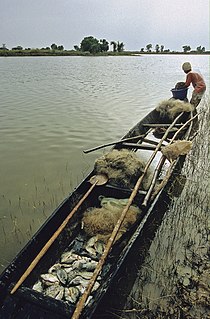
Kalabougou is a Bambara village on the left bank of the Niger River in the Ségou Region of Mali.
The Jɔgɔ (Jogo) or Numu languages are at least a pair of closely related Mande languages, Ligbi of Ghana and the extinct Tonjon of Ivory Coast. Kpee of Burkina Faso is similar, but no comparison to Ligbi has been done.
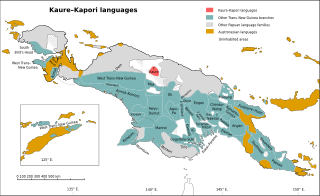
Kaure is a Papuan language of West Papua. It is spoken in the villages of Lereh, Harna, Wes, Masta, and Aurina. Narau is either a dialect or a closely related language; there is little data.

The Twa are a group of African Pygmy peoples, tribes, or castes who live interdependently with agricultural Bantu populations, providing the farming population with game in exchange for agricultural products.
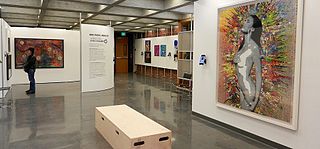
New Museum Los Gatos (NUMU), formerly the Los Gatos Museum Association founded in 1965, is a public non-profit art and history museum located in the Civic Center Plaza in downtown Los Gatos, California. NUMU’s mission is to engage the community at the intersection of art, history and education through innovative, locally connected and globally relevant exhibitions, programs and experiences.
Paiute language may refer to any of the languages spoken by the Paiute people:







